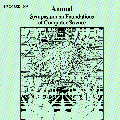In a distributed coin-flipping protocol, Blum [ACM Transactions on Computer Systems '83], the parties try to output a common (close to) uniform bit, even when some adversarially chosen parties try to bias the common output. In an adaptively secure full-information coin flip, Ben-Or and Linial [FOCS '85], the parties communicate over a broadcast channel and a computationally unbounded adversary can choose which parties to corrupt during the protocol execution. Ben-Or and Linial proved that the $n$-party majority protocol is resilient to $o(\sqrt{n})$ corruptions (ignoring log factors), and conjectured this is a tight upper bound for any $n$-party protocol (of any round complexity). Their conjecture was proved to be correct for single-turn (each party sends a single message) single-bit (a message is one bit) protocols, Lichtenstein, Linial, and Saks [Combinatorica '89], symmetric protocols Goldwasser, Kalai, and Park [ICALP '15], and recently for (arbitrary message length) single-turn protocols Tauman Kalai, Komargodski, and Raz [DISC '18]. Yet, the question for many-turn (even single-bit) protocols was left completely open. In this work we close the above gap, proving that no $n$-party protocol (of any round complexity) is resilient to $O(\sqrt{n})$ (adaptive) corruptions.
翻译:在分布式的硬币翻转协议中,Blum [计算机系统ACM交易 {83], 各方试图输出一个通用(接近)制服, 即使一些敌对选择的当事方试图偏向共同输出。 在一个适应性安全的完整信息硬币翻转、 Ben- Or 和 Linial [FOCS '85] 中, 各方通过广播频道进行沟通, 计算式的对手可以选择执行协议期间的哪些腐败方。 Ben- Or 和 Linial 证明, 美元- 政党多数协议能够适应美元( sqrt{n}) 的( ) 腐败( ) 美元( ) 腐败( ) ( 美元) ( 美元) ( 美元) ( 美元) ( 美元) ( 美元) ( 美元) ( 美元) ( 美元) ( 美元) ( 美元) ( 美元) ( 美元) ( 美元) ( 美元) ( 美元) ( 美元) ( 美元( 美元) ( 美元( 美元) ( 美元) ( 美元) ( 美元) ( 美元( 美元) ( 美元) ( 美元) ( 美元) ( 美元) (




